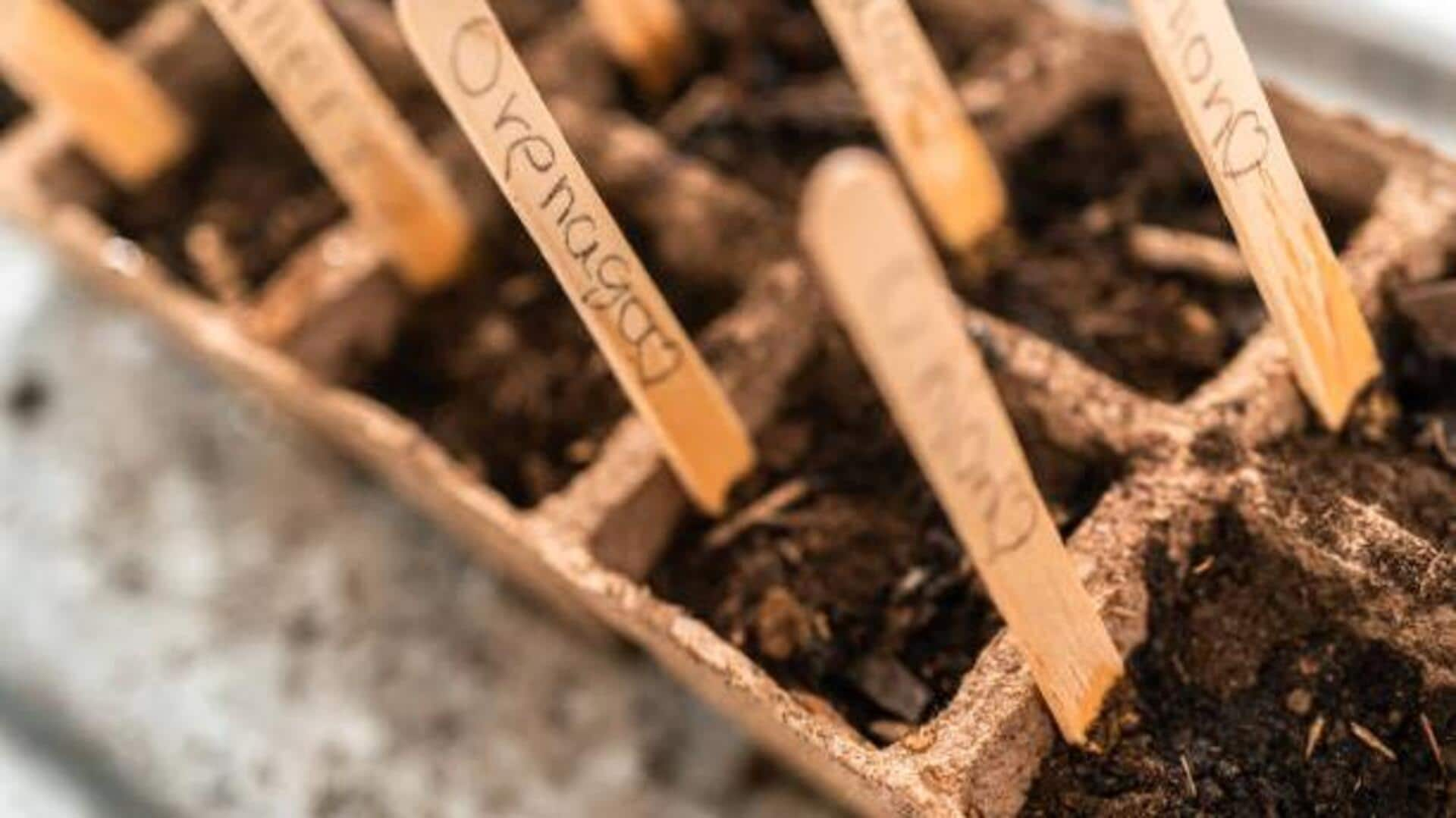
Budget-friendly plant marker DIY projects in Africa
What's the story
Gardening is a beloved pastime for many across Africa, beautifying spaces while also providing food and medicinal benefits. However, remembering what you planted where can prove tricky, especially for green thumbs juggling multiple varieties. This article delves into easy and affordable DIY projects for making your own plant markers, ensuring your garden is not only well-organized but also boasts a personal touch without straining your wallet.
Recycling
Use recycled materials
Recycling household items is a creative and eco-friendly way to make plant markers. Use old spoons, broken pieces of terracotta pots, or sticks, sanding them down if necessary. Write the name of each plant on the items using a waterproof marker or paint. This method is not only inexpensive but also helps minimize waste.
Stone art
Craft with stones and rocks
Stones and rocks are abundant in Africa and can serve as lovely natural markers for your garden. Choose stones of different sizes, ideally with flat surfaces that are easy to write on. Decorate these stones with the names of your plants using waterproof paint or permanent markers, and then arrange them accordingly in your garden beds. This method adds a rustic charm to your garden and is practically free.
Wooden creativity
Upcycle wooden spoons
Wooden spoons make excellent plant markers too! If you have old wooden spoons that are no longer good for cooking, don't toss them out. You can paint them in vibrant colors and write on each one with a waterproof marker for different plant names before sticking them into your garden soil. This way, you not only repurpose but also add color and life to your gardening space.
Brick tags
Create markers from bricks or tiles
Broken bricks or tiles are surprisingly great for garden plant markers. These pieces often have smooth surfaces, which are ideal for labeling with paint or permanent markers. You can lay them flat on the ground next to plants or even prop them up for visibility. This is a brilliant way to repurpose construction waste and maintain an organized garden.
Plastic innovation
Utilize plastic bottle labels
Plastic bottles are everywhere and many times they don't end up in the recycling bin and become environmental pollutants. Cut strips from clean plastic bottles and use a permanent marker to write plant names on them before attaching these strips around bamboo sticks or any other stick-like objects you might have lying around. Stick them next to the respective plants for a waterproof, easy-to-make solution that helps reduce plastic waste.